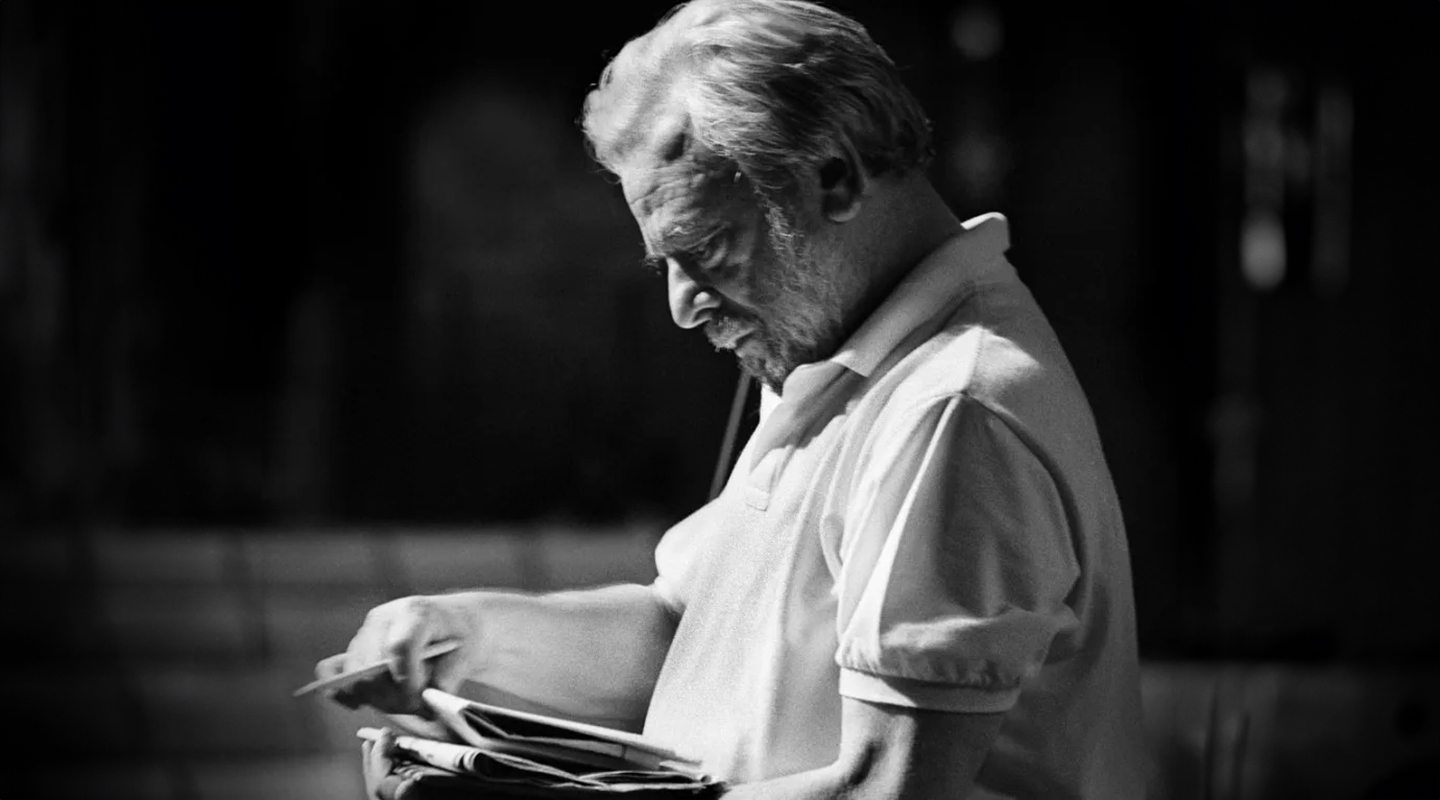Posted October 24, 2023

Sondheim’s work is elusive, ambivalent, internally conflicted, and deeply concerned with how stories are told. What could be more Jewish?
By Gabrielle Hoyt
American Theatre Magazine; January 28, 2022
Growing up, I insisted we call him “Songheim.” I thought that was his name, a moniker fit for his vocation. And I thought he was mine. Part of my family. Musical, like us. Language-obsessed, like us. Neurotic, like us. Jewish, like us.
I don’t remember learning about Stephen Sondheim’s Judaism, just as I don’t remember first hearing his songs. He was just always there—and he’s never left me since, even at times when I very nearly left Judaism. From age 18 to 28, in fact, I refused to enter a synagogue. When I finally returned this past year for the High Holidays, I couldn’t remember the words or the tunes. My emotional link to the ritual felt like a bad radio signal, staticky, unpredictable, fading in and out. Afterward I had to admit that the music of my people didn’t live on in me. Not like Sondheim’s does, anyway. Still, following his death, reading tweets and tributes that ended with, “May his memory be a blessing,” I felt a twinge of kinship. A feeling of connection. A sense that Sondheim’s Judaism, however ambivalently held, mattered.
Read more at AmericanTheatre.orgExperience the wisdom and wit of Jewish composer Stephen Sondheim and his myriad contributions to the American musical. Sondheim on Sondheim is presented in partnership with the JCC Mizel Arts and Culture Center as part of the Neustadt JAAMM Series.
